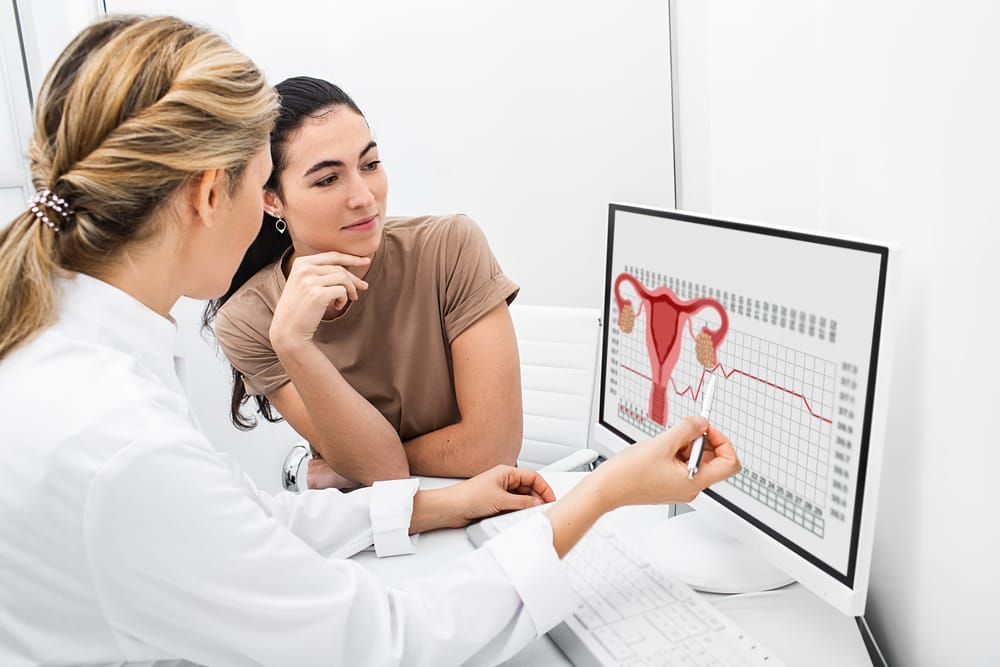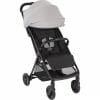Parenting
Try These Fertility Enhancers To Get Pregnant
Any individual going through their fertility voyage will understand how disheartening it can feel and as if you have no power over your body. That’s why many of us are opting for fertility boosters and nutrients to ensure we’re taking all possible steps to enhance our fertility before moving forward.
But do these fertility enhancers truly bring results and are they worth our investment? Or can we acquire all the benefits from fertility power foods? We spoke with Embryologist and Fertility Coach at Béa Fertility, Sandy Christiansen to receive her professional view on all things fertility enhancements to determine whether they are necessary for us.
Reasons behind using fertility enhancers or nutrients by women
We are aware that following a wholesome and varied diet is excellent for your well-being, and according to Sandy, research suggests certain nutrients can have a beneficial impact on your fertility.
“Similar to how it influences almost every aspect of our well-being, our eating habits can play a vital role in supporting fertility. Utilizing specific enhancers and nutrients can aid in this and may enhance the chances of conception. Some studies indicate that various nutrients can positively affect ovulation, implantation, and egg or sperm quality, for instance.”
Which are the premium fertility enhancers and nutrients to uplift women’s fertility?
Merits
- Appropriate for both genders
- Additionally prepared with Vitamin B12
- Aids in combating weariness and exhaustion
Demerits
- Occasionally may result in bloating or gas
“Research shows that Vitamin D may have a beneficial effect on women’s health.”
Advantages
- Promotes bone health
- Enhances mood
Disadvantages
- Long-term excessive intake can lead to calcium buildup
Antioxidant-rich Coenzyme Q10 is believed to preserve egg quality by combating
Advantages
- Beneficial for a variety of body parts
- Boosts stamina levels
Disadvantages
- Several clients reported missing capsules in their containers
“Omega 3 fatty acids may also serve as a beneficial supplement to promote regular menstrual cycles,
Advantages
- Boosts cardiovascular health
- Enhances eyesight
Disadvantages
- Some users reported a displeasing aftertaste
Are there any fertility supplements men can take?
When considering fertility supplements for men, it’s essential to also focus on your partner’s fertility. Alongside dietary choices that can enhance sperm count, discussing potential supplements with your partner is a valuable step towards increasing the likelihood of conception.
Similar to women’s health, the utilization of vitamins and supplements can significantly support male fertility.
Zinc is believed to positively impact sperm quality and production, as do Omega 3 fatty acids. Moreover, antioxidants like vitamins C and E, along with Coenzyme Q10, can shield sperm from oxidative stress and free radicals, potentially enhancing sperm quality and boosting fertility.
Zinc
Pros
- Boosts your immune system
- Good for bone health
Cons
- Some customers found them challenging to swallow
Vitamin C
Advantages
- Reduces feelings of weariness and exhaustion
- Enhances collagen formation
Cons
- Medication is sizable and may pose swallowing challenges
Vitamin E
Is it necessary to consult a healthcare provider prior to consuming fertility supplements?
“Consulting your general practitioner or fertility specialist before commencing any new supplements is advisable. They can provide personalized guidance based on your specific circumstances and medical history, assisting you in selecting suitable supplements and ensuring their safe usage.”
When should one begin taking fertility supplements?
“If you are actively trying to conceive, starting fertility supplements early may enhance your overall health and fertility sooner. When uncertain about commencing fertility supplements or the appropriate timing, seek advice from your general practitioner or a reliable healthcare professional. Being informed about your options is crucial, even if you ultimately opt not to use any supplements during your fertility journey.”
Do other supplements have the potential to disrupt fertility?
“Certain supplements can impact thyroid hormone levels, subsequently influencing ovulation and progesterone production. Therefore, if you have a known thyroid condition, discussing supplement use with your healthcare provider is particularly important.”
“It is also important to be cautious with protein shakes and powders as excessive consumption could negatively affect testosterone levels and sperm production.”
Can fertility supplements impact my menstrual cycles?
“The majority of fertility supplements are unlikely to disrupt your menstrual cycle. If you have any concerns or notice any deviations in your period, it’s crucial to schedule an appointment with your general practitioner to ensure there are no underlying issues affecting your menstruation.”
What side effects can fertility supplements have?
“In general, vitamins and supplements taken to bolster your fertility should not lead to adverse side effects. However, certain supplements, particularly those containing hormones, may induce symptoms in some individuals such as nausea, headaches, abdominal discomfort, and breast tenderness. If you encounter any side effects, it’s advisable to consult your GP to rule out any other potential causes and discuss whether discontinuing the supplement is necessary.”

















